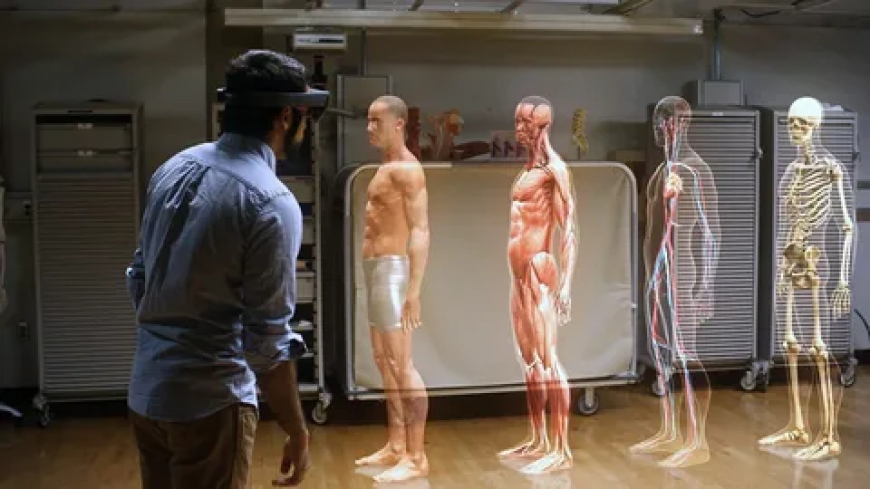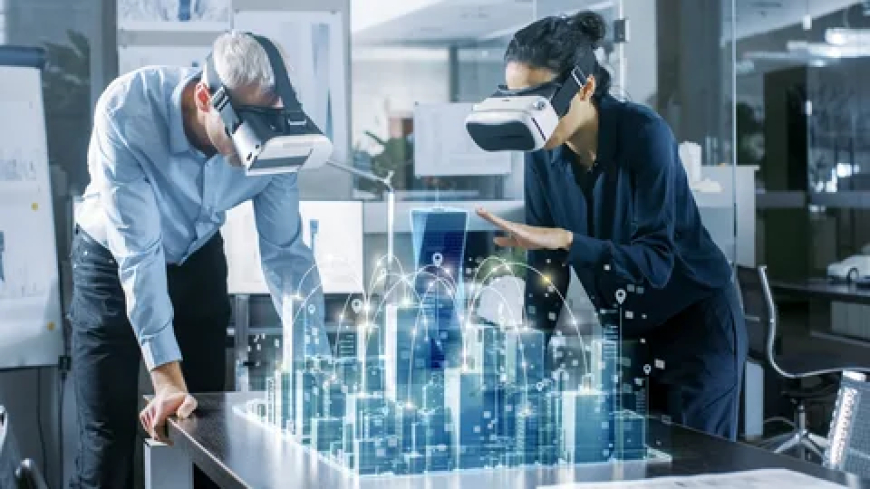FUture of Virtual Reality
Meta Tag: Explore the future of virtual reality and discover how emerging VR technologies are transforming gaming, healthcare, education, and beyond. Summary: Dive into the future of virtual reality, where cutting-edge advancements are revolutionizing industries like gaming, healthcare, and education. Learn how VR is set to change the way we experience digital worlds and interact with technology.

The Future of Virtual Reality: What Lies Ahead
A New Era of Immersion
Virtual Reality (VR) is no longer just science fiction. It has become a reality that’s transforming our world. From gaming to education, VR is creating experiences like never before. As technology advances, the future of virtual reality looks even more promising.
Who Is Impacted by Virtual Reality?
Everyone can benefit from VR. Gamers, educators, healthcare professionals, and even everyday users are experiencing its impact. Companies are investing heavily in VR, making it more accessible. This means more people will have the chance to explore virtual worlds.
What’s at Stake?
The potential of VR is limitless. It could change how we live, work, and play. However, there are challenges. The technology is still evolving, and there are concerns about privacy and safety. These issues must be addressed as VR becomes more integrated into our daily lives.

Why Now Is the Time to Act
The VR industry is growing rapidly. Now is the time for businesses and individuals to embrace it. Waiting could mean missing out on opportunities to innovate and lead in this space. Those who adopt VR early will have a competitive edge.
Key Areas of VR Development
1. Gaming and Entertainment
Gaming is one of the most popular uses of VR. It provides immersive experiences that traditional gaming cannot match. As VR technology improves, games will become even more realistic and interactive. Imagine stepping into a virtual world that feels as real as the physical one.
2. Education and Training
VR is revolutionizing education. It allows students to experience historical events, explore the human body, or even travel to outer space—all from the classroom. Training programs, especially in fields like medicine and aviation, are also benefiting from VR simulations.
3. Healthcare
In healthcare, VR is being used for everything from pain management to surgical training. It allows doctors to practice procedures in a risk-free environment. Patients can also use VR for therapy, helping them recover faster.
4. Remote Work and Collaboration
With the rise of remote work, VR offers new ways to collaborate. Virtual meetings, conferences, and workspaces make it feel like you’re in the same room as your colleagues, even if you’re miles apart. This could redefine how we work in the future.
5. Retail and E-Commerce
Shopping is becoming more interactive with VR. Imagine trying on clothes or exploring a store without leaving your home. Retailers are using VR to create virtual showrooms, giving customers a unique shopping experience.
The Challenges Ahead
1. Technology and Accessibility
While VR technology is advancing, there are still challenges to overcome. High costs and the need for powerful hardware can make it inaccessible for some. Developers are working on making VR more affordable and easier to use.
2. Privacy and Security
As VR becomes more integrated into our lives, privacy concerns grow. Data collected in virtual environments could be misused. Ensuring that VR systems are secure and that user data is protected is crucial.
3. Health Concerns
Prolonged use of VR can lead to issues like eye strain and motion sickness. These health concerns need to be addressed to ensure that VR is safe for everyone.
The Future of VR: What to Expect
1. Increased Realism

As technology advances, VR experiences will become even more lifelike. Enhanced graphics, haptic feedback, and improved motion tracking will make virtual worlds feel real. This will open up new possibilities for gaming, education, and beyond.
2. Wider Adoption
As VR becomes more affordable, more people will have access to it. This will lead to wider adoption across various industries. Expect to see VR in more homes, schools, and workplaces in the coming years.
3. Integration with Other Technologies
VR will likely integrate with other emerging technologies like augmented reality (AR) and artificial intelligence (AI). This will create even more immersive and personalized experiences. Imagine a world where VR, AR, and AI work together to create a seamless digital environment.
Conclusion: Embrace the Future
The future of virtual reality is bright. It offers endless possibilities for entertainment, education, healthcare, and more. However, challenges remain, and it’s important to address them as we move forward. Now is the time to embrace VR and be part of this exciting journey. The world is changing, and VR is leading the way.












